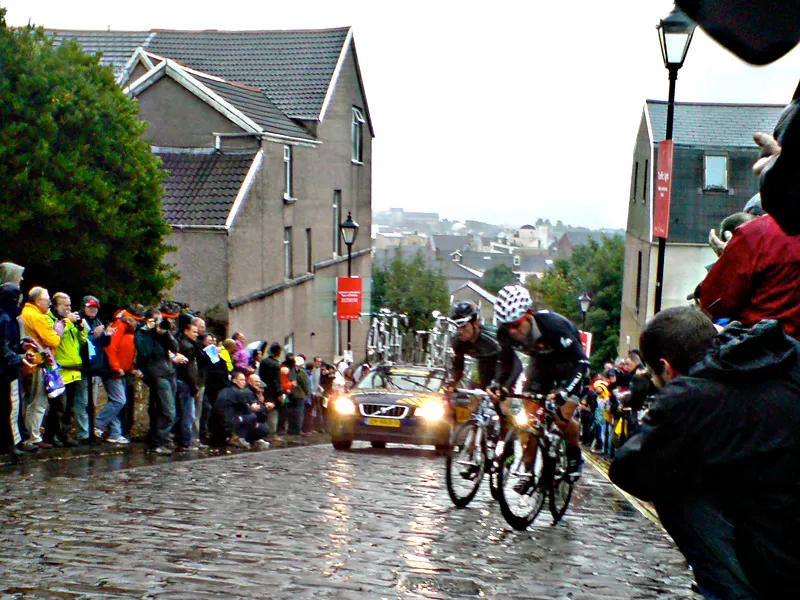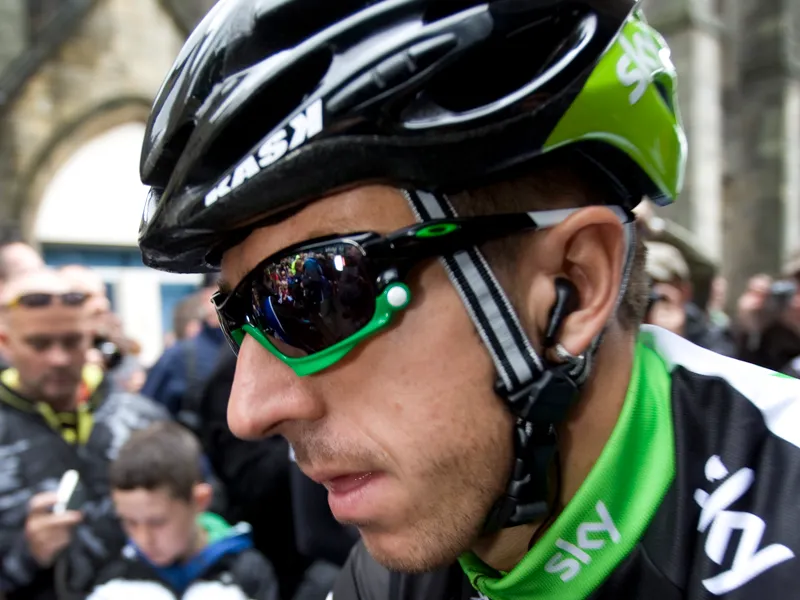They arrived in Teignmouth, at the end of stage four of the Tour of Britain, in ones and twos, with pain written into grimy faces. It was a scene more reminiscent of a summit finish on the Col du Tourmalet than a seaside town in England, but it spoke volumes about a race described afterwards by Russell Downing of Team Sky as “absolute carnage”.
This daily 'carnage' has made the seventh Tour of Britain the most interesting and unpredictable so far, but yesterday it caused a headache for the organisers and 32-strong police motorcycle escort, with the race spread over more than 20 minutes.
At one point the gap between the front group and the main bunch stretched to six miles, with one commissaire reportedly urging the peloton to speed up under threat of mass elimination if they finished outside the 10 percent time cut.
Regardless of whether or not they made the cut, the prospect of 60 riders being thrown off, with only 30 remaining to contest the remaining four stages, was always unlikely. And so it proved: the main bunch scraped inside the 10 percent time limit and the possibility of mass elimination was avoided.
Hugh Roberts, the race’s chief executive, admitted at the start in Minehead that a more demanding course had been designed this year with the intention of “spicing things up a bit”. Adverse weather, he added, had “made life interesting”.
Tough, hilly courses allied to strong wind and rain on Monday and Tuesday – which happened to feature the two toughest stages – have resulted, as Downing said, in carnage. But Graham Jones, the former pro rider and route director, said in Teignmouth that he was happy with the race so far.
“We’ve had one or two complaints from teams in the past about it being a race for sprinters,” said Jones. “It’s been very controlled in previous years. People said again this year that it’d be a race for sprinters, but we told them, 'this year it won’t be a race for sprinters'. And it hasn’t been.”

Monday's stage through Wales saw riders tackle a wet and treacherous Constitution Hill (Pic: Thomas Guest, Flickr.com)
Jones shrugged off the suggestion that the gap between the front and back of the race yesterday might have caused issues with the rolling road closure. “There weren’t any problems,” he said. “The police motorbikes are fantastic and there’s great support in this area, so it was well managed. The roads were maybe open [to normal traffic] for a bit between the front group and the bunch, but it was all well managed."
“On a stage like that you’re always going to get a big group who are out of it,” added Jones, “and who don’t have any reason to race. So it doesn’t bother me that they sat up just rode in; it’s what you'd expect on a tough stage like that.”
Downing, who has missed only one of the seven Tours of Britain, said this one is proving “definitely the hardest ever”. Why? “It’s a combination of things: the class of field, the course, the weather conditions,” he said. “Most of all, everyone’s racing."
“In the past they’ve known it was going to end in bunch kicks, so the big teams have kept it together. There have been good riders but they’ve tended to be sprinters. Now it’s hillier there are guys who can really put the power down in the finale, as they did today.
“It’s brought new tactics to the race. It’s definitely good for the race. It was brutal out there today. Dan Lloyd [of the Cervelo TestTeam] said to me at one point, ‘This’ll make great TV’. That was about the only conversation we could have, then we were back in the gutter again.”
With the weather forecast to improve in the second half of the week, and the stages in the east of the country set to be easier, Jones’s only regret is that the most decisive moments might have already been played out. “It’s a pity that a lot of it is packed into the first five stages,” he said.
“That’s just the way it is with the route, in terms of where we have to take the race [due to the fact it’s largely funded by local councils and regional development agencies]. It’s still a bit bitty, but we’re working on that.”
